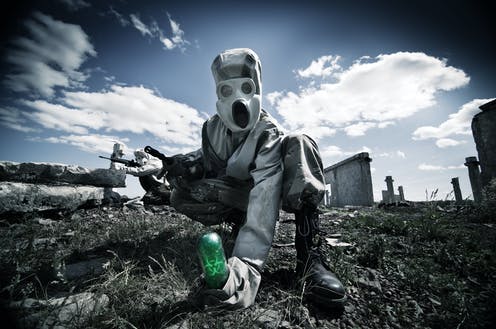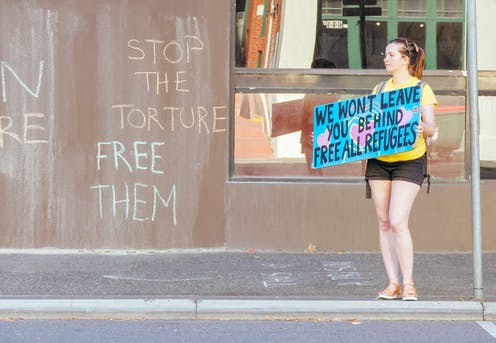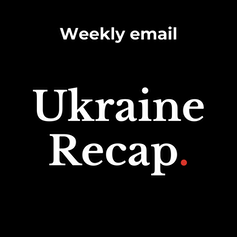Ukraine war: grim spectre of chemical and biological weapons raises fears of Putin’s dirty arsenal
Would Russia really use chemical or biological weapons in Ukraine? Tereshchenko Dmitry via Shutterstock Warning: this article is accompanied by an image that some readers might find distressing. The United States has issued a stark warning that Russia is preparing to use biological and chemical weapons in Ukraine. The claim comes off the back of accusations by Russia that it is Ukraine who is willing to resort to chemical and biological warfare. A spokesperson for the Russian foreign ministry, Maria Zakharova, has alleged that the US is collaborating with Ukraine to develop these weapons of mass destruction. White House press secretary, Jan Psaki, strenuously denies these claims. She has stated that Russia is the real threat. Psaki announced on TwitterContinue Reading


















